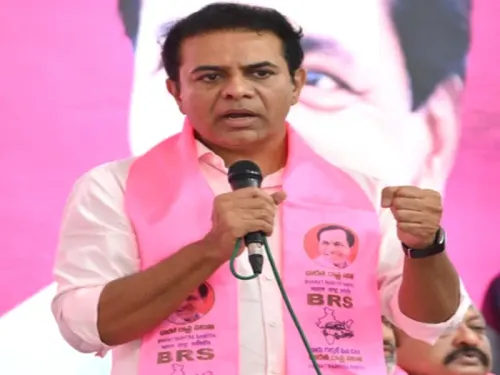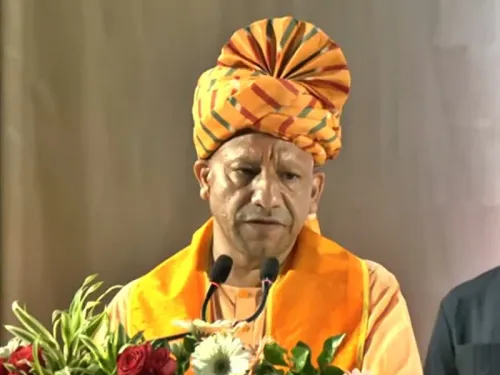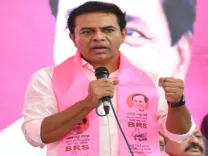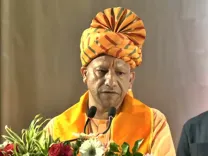Did the Lights Off Protest Against the Waqf Act Gain Support in Telangana?
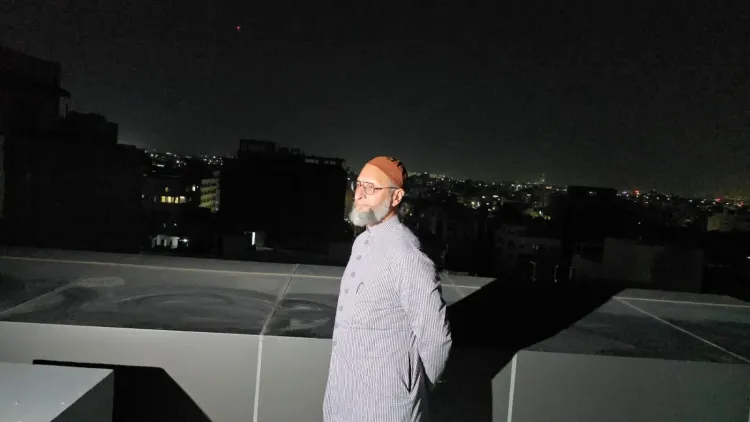
Synopsis
Key Takeaways
- Community Solidarity: Residents united to oppose the Waqf Amendment Act.
- Prominent Participation: Leaders like Asaduddin Owaisi played a key role in the protest.
- Constitutional Concerns: The Act is viewed as a violation of fundamental rights.
- Future Actions: Additional protests are planned to maintain pressure on the government.
- Interfaith Support: The protest saw participation across different religions.
Hyderabad, April 30 (NationPress) The All India Muslim Personal Law Board’s 'Batti Gul' protest opposing the Waqf (Amendment) Act saw a remarkable turnout in Hyderabad and various regions of Telangana, as residents turned off their lights for 15 minutes on Wednesday night.
Darkness enveloped many areas of the old city of Hyderabad and other locations such as Nampally, Mallepally, Toli Chowki, Mehdipatnam, and Golconda.
Shopkeepers joined the movement, pausing their activities for 15 minutes to express solidarity.
Responding to the AIMPLB's call, participants extinguished the lights in their homes, businesses, and establishments from 9 p.m. to 9:15 p.m. to voice their dissent.
Asaduddin Owaisi, president of the All India Majlis-e-Ittehad ul Muslimeen (AIMIM) and MP from Hyderabad, also participated by turning off the lights at his Shastripuram residence.
Owaisi, a key figure in AIMPLB, urged the community to ensure the protest's success.
Speaking to reporters, the MP declared the protest an overwhelming success, noting, “There was a significant spontaneous response. Reports from Hyderabad, Telangana, and Karnataka indicate that individuals of all faiths joined the cause.” He expressed gratitude to those who contributed to its success.
The protest aimed to convey a message to Prime Minister Narendra Modi that the Waqf Act is detrimental to Waqf interests.
Owaisi labeled the Act as unconstitutional, asserting that it threatens Waqf properties.
He insisted the Act violates the Indian Constitution, particularly Articles 14, 15, 25, 26, and 29.
The AIMIM leader mentioned that additional protests are planned in the coming weeks, including human chains and round-table discussions.
“Our protest will persist until the Narendra Modi administration withdraws the Waqf Act,” he affirmed.
Describing the Act as ‘black legislation’, Owaisi accused it of being designed to seize mosques, graveyards, and other Waqf properties.
The ongoing protest against the Waqf Act was briefly suspended by AIMPLB to denounce the terror attack in Pahalgam, pausing their actions for three days.
The MP emphasized there would be no compromise regarding the nation’s sovereignty and integrity, condemning the attack and holding the Pakistani establishment accountable.
Owaisi stated that terrorists, backed by Pakistan, targeted tourists, asking them about their religion before committing violence.


